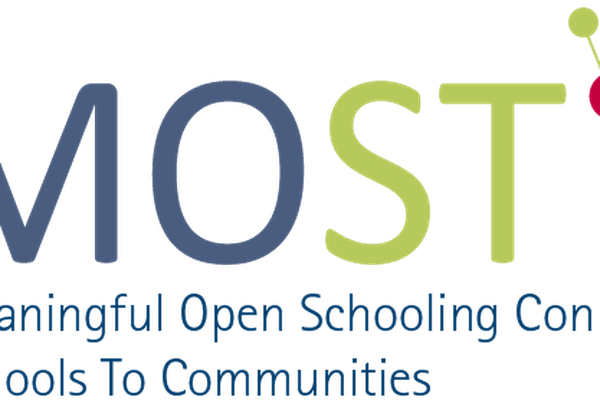MOST (Meaningful Open Schooling Connects Schools To Communities)
from 13/09/2020 until 31/08/2023
The H2020 project MOST (2020-2023) opens up formal science education and establishes partnerships between schools and their communities (families, science education providers, citizens, businesses etc.). Together they work on environmental school-community-projects (SCPs) with a thematic focus on waste management and energy saving. These participatory projects directly respond to the needs and values of those involved, benefitting the community as a whole and making schools agents of community well-being. MOST’s learning impact is boosted through an educational research-based approach that raises interest in science, scientific literacy and environmental responsibility.
To realise this powerful Open Schooling idea, our consortium gathers 23 expert teams from 10 European countries, including science education research and science teaching staff from higher education institutes, schools, non-formal learning providers, educational authorities, civic organisations, municipalities and enterprises.
To initialize the school-community-projects our consortium provides support for schools in form of preparatory workshops, potential partner search activities and through provision of operational and pedagogical instructions. Activities on the local, regional and European level foster the sharing of knowledge, establishing further partnerships and mainstreaming MOST results across Europe.
The core of the project is the integration of diverse participants: science and research, formal and non-formal educational institutions, politics, economy and society – on a local level by cooperating within “Open Schooling” projects, as within the project consortium, which contains all named institutions. The cooperation of diverse participants is the prerequisite to develop solution approaches, which take the needs of all concerned parties into consideration. At the same time, this is a driver for innovation, which will motivate all participants, to commit in the long term.
Aim
Objective: Establishing Open Schooling Communities across Europe
Our H2020 project MOST supports all school students and members of school’s local communities – regardless of their gender, cultural/socio-economic background or achievement level – in developing scientific knowledge and interest in science. This enables them to pursue scientific careers which will, long-term, raise the numbers of scientists in Europe.
To this end, the project opens up school education with the purpose of creating learning spaces, which are accessible for all citizens to join, and let society learn from, about and with each other. Research and practice have shown that engagement of citizens in open and participatory science education processes supports their scientific literacy and ability to make informed decision. Plus, these projects will take place in the context of a research-based approach to didactically foster interest in science, and scientific and transversal skills.
Particular attention is payed to encourage and enable girls to tap their science potential. Research has shown that girls respond much better to science teaching with links to real life and authentic contexts as well as with a focus on inquiry-based learning and cooperative ways of working. The project addresses this in various ways.
Through targeted exploitation measures, we seek to empower schools and their staff to become agents of citizen science and community well-being. This will, in the long run, enable schools to become solid elements of Europe’s citizen science processes.
Further, a European Open Schooling Network (EOSnet) was established to connect all Open Schooling actors involved in the project to encourage further schools, HEIs or other stakeholders across Europe to initiate SCPs, to exchange best practices of Open Schooling activities and support the progression of Open Schooling in general.
About funding
Funding bodies: European Comission
Funding program: Horizon 2020
Created Oct. 13, 2023, 8:40 a.m.
Updated Nov. 14, 2023, 1:33 p.m.
